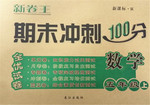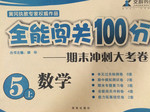题目内容
When I was growing up, I had an old neighbor named Dr. Gibbs. He didn’t look like any doctor I’d ever known. He never yelled at us for playing in his yard. I remember him as someone who was a lot nicer than most of the adults in our community.
When Dr. Gibbs wasn’t saving lives, he was planting trees. His house sat on ten acres, and his life’s goal was to make it a forest.
The good doctor had some interesting theories concerning plant care and growth. He never watered his new trees, which flew in the face of conventional wisdom. Once I asked why. He said that watering plants spoiled them so that each successive tree generation would grow weaker and weaker. So you have to make things rough for them and weed out(淘汰) the weaker trees early on.
He talked about how watering trees made for shallow roots, and how trees that weren’t watered had to grow deep roots in search of moisture. I took him to mean that deep roots were to be treasured.
So he never watered his trees. He planted an oak and, instead of watering it every morning, he’d beat it with a rolled-up newspaper. Smack! Slap! Pow! I asked him why he did that, and he said it was to get the tree’s attention.
Dr. Gibbs passed away a couple of years after I left home. Every now and again, I walked by his house and looked at the trees that I’d watched him plant some twenty-five years ago. They’re extremely tall, big and robust since they have deep roots now. However, the trees in my garden trembled in a cold wind although I had watered them for several years.
It seems that adversity(逆境) and suffering benefit these trees in ways comfort and ease never could. I stood there deep in thought.
Every night before I go to bed, I check on my two sons. I stand over them and watch their little bodies, the rising and falling of life within. I often pray for them. Mostly I pray that their lives will be easy. But I think it’s time to change my prayer(祷词) because now I know my children are going to encounter hardship..
According to Dr. Gibbs’ theories, trees will become weaker if they______
A. are lack of care B. are watered C. are weeded out D. are beaten
.According to Para.3 and Pare.4, we can infer that Dr. Gibbs’moto(座右铭)may be_____
A. “seeing is believing” B.“Put everything in proper use”
C. ”Practice makes perfect” D. “No pains, no gains”
.The underlined word robust in Para.5 most probably means______
A. strong B. strange C. deep D. old
Which of the following may be the author’s best prayer for his two sons now ?
A. I wish them strong wings, with which they can fly higher and touch the sky.
B.I wish them nice fortune so that they can meet people like Dr. Gibbs in the future.
C.I wish them deep roots into the earth since the rains fall and the winds blow often.
D.I wish them great shades under the tree since the sunlight is always sharp and bitter.
Which of the following can be the best title of the passage?
A. A Nice Doctor B. The Deep Roots
C. Adversity and Suffering D. My Childhood Memory
【小题1】B【小题1】D【小题1】A【小题1】C【小题1】B
解析:
略

 新卷王期末冲刺100分系列答案
新卷王期末冲刺100分系列答案 全能闯关100分系列答案
全能闯关100分系列答案完形(15%)
Albert Einstein said, “In the middle of every difficulty lies opportunity.” Once __41 __, such opportunities are like valuable diamonds hidden in the sand.
Several years ago, I spoke at a school about how we were surrounded by “___42___ ” if we could only recognize them. A man stopped by to see me, and I remembered him as somebody who had suffered through a(n) ___43___ divorce (离婚) and was examining what was most important to him. He took a small ___44___ out of his pocket. Here is what he said to me that day.
“I ___45___ on this stone when I was leaving church last Sunday. You had spoken about ___46___ opportunities—diamonds. I put the stone in my ___47___ to remind me to look for those “diamonds” that I need. I have been trying to sell my business . On Monday morning, a man w ho seemed interested in ___48___ some of my stock (股票) stopped by. I thought, ‘Here’s my diamond—don’t let it ___49___!’ I sold the entire stock to him by noon. Now my next diamond is to find a new ___50___ !”
ho seemed interested in ___48___ some of my stock (股票) stopped by. I thought, ‘Here’s my diamond—don’t let it ___49___!’ I sold the entire stock to him by noon. Now my next diamond is to find a new ___50___ !”
Not long afterward, he did find a new an d better job. From then on, he decided to keep his stone with him all the time as a ___51___ to look for “diamonds” as he dug through the ___52___ of life.
d better job. From then on, he decided to keep his stone with him all the time as a ___51___ to look for “diamonds” as he dug through the ___52___ of life.
Richard DeVos is right when he points out. “This is an exciting world. It is filled with opportunities. Great moments wait around every corner.” Those moments are diamonds that, ___53___ left unrecognized, will be forever lost.
Are you looking for “diamonds” every day? If not, you may ___54___ pass them by! Perhaps there is a diamond of opportunity hidden in the difficulty you’re ___55___ now.
| 【小题1】 |
|
| 【小题2】 |
|
| 【小题3】 |
|
| 【小题4】 |
|
| 【小题5】 |
|
| 【小题6】 |
|
| 【小题7】 |
|
| 【小题8】 |
|
| 【小题9】 |
|
| 【小题10】 |
|
| 【小题11】 |
|
| 【小题12】 |
|
| 【小题13】 |
|
| 【小题14】 |
|
| 【小题15】 |
|
完形填空 (共20小题;每小题1分,满分20分)
请认真阅读下面短文,从短文后各题所给的A、B、C、D四个选项中,选出最佳选项,并在答题卡上将该项涂黑。
We often talk about ourselves as if we have permanent genetic defects (缺陷) that can never be changed. “I’m impatient.” “I’m always behind.” “I always put things 31 !” You’ve surely heard them. Maybe you’ve used them to describe 32 .
These comments may come from stories about us that have been 33 for years—often from 34 childhood. These stories may have no 35 in fact. But they can set low expectations for us. As a child, my mother said to me, “Marshall, you have no mechanical skills, and you will never have any mechanical skills for the rest of your life.” How did these expectations 36 my development? I was never 37 to work on cars or be around 38 . When I was 18, I took the US Army’s Mechanical Aptitude Test. My scores were in the bottom for the entire nation!
Six years later, 39 , I was at California University, working on my doctor’s degree. One of my professors, Dr. Bob Tannbaum, asked me to write down things I did well and things I couldn’t do. On the positive side, I 40 down, “research, writing, analysis, and speaking.” On the 41 side, I wrote, “I have no mechanical skills.”
Bob asked me how I knew I had no mechanical skills. I explained my life 42 and told him about my 43 performance on the Army test. Bob then asked, “ 44 is it that you can solve 45 mathematical problems, but you can’t solve simple mechanical problems?”
Suddenly I realized that I didn’t 46 from some sort of genetic defect. I was just living out expectations that I had chosen to 47 . At that point, it wasn’t just my family and friends who had been 48 my belief that I was mechanically hopeless. And it wasn’t just the Army test, either. I was the one who kept telling myself, “You can’t do this!” I realized that as long as I kept saying that, it was going to remain true. 49 , if we don’t treat ourselves as if we have incurable genetic defects, we can do well in almost 50 we choose.
| 【小题1】 |
|
| 【小题2】 |
|
| 【小题3】 |
|
| 【小题4】 |
|
| 【小题5】 |
|
| 【小题6】 |
|
| 【小题7】 |
|
| 【小题8】 |
|
| 【小题9】 |
|
| 【小题10】 |
|
| 【小题11】 |
|
| 【小题12】 |
|
| 【小题13】 |
|
| 【小题14】 |
|
| 【小题15】 |
|
| 【小题16】 |
|
| 【小题17】 |
|
| 【小题18】 |
|
| 【小题19】 |
|
| 【小题20】 |
|
 reaking
reaking